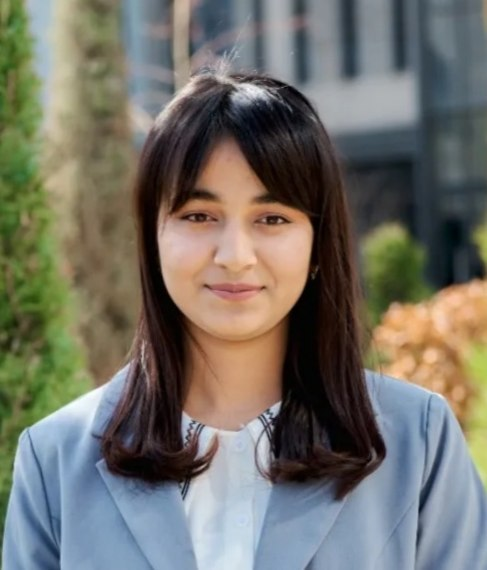
THE LINGUISTICAL STATUS OF “HYPERBOLA” IN MODERN LINGUISTICS
ABSTRACT.
Annotation. Cognitive science can be developed in linguistics today. The “concept”, which is the object of study of the basis of cognitive linguistics, is a framed view of “cognitive semantics” as a result of mental processes, in language to its verbalizers. The concept of “hyperbola” is among such concepts. Articles, the universal nature of hyperbola stylistic tool is highlighted, the similar and different knowledge of verbalizers of their lexical and semantic “deeper research, their lexical and deeper study in Uzbek languages” hyperbola” tools is highlighted.
Keywords: cognitive linguistics, concept, semantics, hyperbole, tropes, stylistics, anti-hyperbole.
INTRODUCTION. Today, in world linguistics, as well as in the linguistics of our country, attention is being paid to the study of the use of language as a social phenomenon. The interest of scientists in the fact that language is an important means of communication between people and its unique mediating function in communication, to study a number of aspects arising from the need for communication, is growing more and more. The department of general linguistics called stylistics or “stylistics” that investigates language as a means of communication performs an important task of consistent and systematic study and clarification of its communicative-pragmatic issues and problems.
Another direction in world linguistics – cognitive linguistics – is developing and flourishing. The subject of his analysis is the role of language in the process of understanding the objective existence of language speakers or writers, as well as the role of cognitive factors in the process of the formation, development and use of language as a means of communication, the unique role of the human factor in it, conceptualization and categorization of the system of human knowledge about the objective world. is the scientific research and scientific illumination of the techniques, tools and methods of language storytelling through processes. In linguistics, the “concept”, which is the main object of the study of cognitive linguistics, as a result of mental processes, has its own special verbalizers, i.e., means of realizing them directly in the language. The concept of “hyperbola” is one such concept.
Hyperbole is one of the most common stylistic tools. In order to exert a strong influence on the interlocutor in the process of communication, the speaker is inextricably linked with his communicative-pragmatic purpose-goal, that is, the need to exaggerate one or another description of an object or event. With the intention of fully realizing the “cognitive/conceptual semantics of hyperbole”, using the stylistic tool of “hyperbole”, he tries to make the speech in the dialogue consistent with the situation, attractive, impressive and expressive. The universal nature of hyperbola is related to such an important factor that its linguo-cognitive basis is “the conceptual semantics of hyperbola, existing in the thinking of every sane person who speaks and writes in the language, is normalized by the received society. Therefore, it is a perceptual phenomenon expressed in the social conceptosphere, and such semantics cannot legally be manifested in any living language through a special system of specific verbal and non-verbal means” (Karaboyev J.B 2015, 74-75.
In conclusion, it can be said that in modern linguistics, a new, interdisciplinary direction – cognitive linguistics-is increasingly developing. Research specific to this direction is based on the principle of anthropocentrism, and the focus of such research is the human factor. At the same time, “concept”, which is the main category of cognitive linguistics, as a mental unit, is used to acquire world knowledge. Among various concepts or conceptual semantics, the concept of “hyperbole”, which is one of the cognitive stylistic concepts, is among the concepts that have a universal nature, and it is impossible not to exaggerate them deliberately and often according to the situation. This indicates that this conceptual semantics is a very important and necessary semantics from the communicative point of view. All synonymous, homonymous, hyponymic, hyponymic and patronymic relationships related to hyperbola are implemented within the hyperbola concept area through its components based on the laws of this system.
REFERENCES 1. Karaboyev J.B. Linguistic status of hyperbole and phraseological units with integrated semantics//New trends in linguistics and their problems. Tashkent, 2015. p. 74-75. 2. Kunin A.V. Frazeologicheskie intensifikatory v sovremennom angliyskom yazyke./ I.Ya., 1960 3. Krysin H.P. Hyperbola in Russian conversational speech. Problemy strukturnoy lingvistiki. 1988, 9-11.
Malika Kaxarova was born on July 10,2001 in Uzbekistan, Navoi . She graduated school №2 . Malika is a fourth-year student of Kimyo International University in Tashkent. Currently, she is a student of primary Education. Holder of Yeoju Technical Institute in Tashkent “ Scholarship 2021/2022” and Kimyo International University in Tashkent “ Scholarship 2022/2023”.
Malika has written articles on the topic of education and has appeared in one of the education journals of the Russian Federation, Indonesia, and Uzbekistan. In 2022, the article on the topic “Aesthetic education of students of higher education institutions on the basis of artistic values of Uzbekistan” was published in the scientific journal “ EUROPEAN SCIENCE” on April №1(63) ISSN 2410-2865, MOSCOW.
The article on the topic “Methods of developing interest among students of higher educational institutions in the artistic culture of Uzbekistan” was published in the scientific journal “ WEB OF SCIENTIST: INTERNATIONAL SCIENTIFIC RESEARCH JOURNAL” on JAN,2022 ISSN:2776, VOLUME 3, of in Republic of INDONESIA. the Republic of Indonesia
Additionally, she is learning new languages: Korean, Turkish, Russian.
